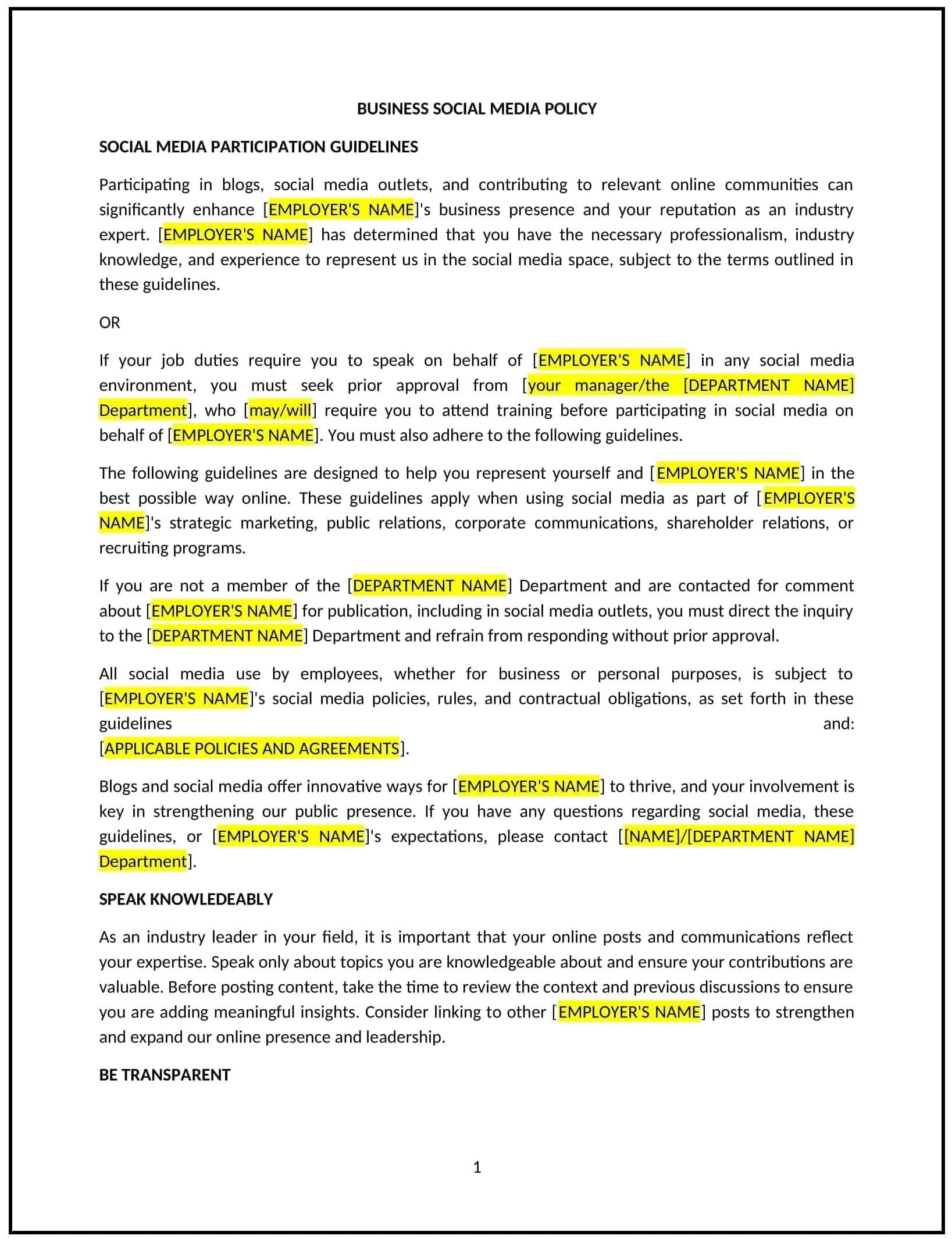Business social media policy (Texas): Free template
Got contracts to review? While you're here for policies, let Cobrief make contract review effortless—start your free review now.

Customize this template for free
Business social media policy (Texas)
This business social media policy is designed to help Texas businesses establish clear guidelines for employees' use of social media in a professional and personal capacity. Whether businesses are managing how employees represent the company online or protecting company reputation and confidential information, this template provides a structured approach to social media usage in and out of the workplace.
By adopting this template, businesses can protect their brand, help ensure compliance with legal regulations, and maintain a positive online presence while respecting employees’ personal freedoms.
How to use this business social media policy (Texas)
- Define acceptable use: Clearly specify how employees should use social media when representing the business, including guidelines for company pages, employee mentions, and customer interaction.
- Address personal use of social media: Outline acceptable personal use of social media during work hours, specifying any restrictions on activities such as posting inappropriate content, engaging in controversial discussions, or sharing confidential information.
- Set confidentiality expectations: Explain that employees must not share confidential business information, trade secrets, or any other proprietary data on social media, whether personally or professionally.
- Specify brand representation: Provide guidelines on how employees should refer to the business on their personal social media accounts, such as using disclaimers when posting about the company or refraining from making comments on behalf of the business.
- Outline consequences for policy violations: Detail the actions that will be taken if an employee violates the social media policy, ranging from warnings to termination, depending on the severity of the violation.
Benefits of using this business social media policy (Texas)
This policy offers several benefits for Texas businesses:
- Protects company reputation: A clear social media policy helps businesses maintain a positive online presence and reduces the risk of damaging comments or content being posted by employees.
- Reduces legal risks: By addressing confidentiality and legal considerations, businesses reduce the risk of accidental data leaks, defamation, or the mishandling of intellectual property on social media platforms.
- Supports consistent brand messaging: A well-defined policy ensures that employees represent the company consistently and professionally across all social media platforms.
- Increases employee awareness: The policy helps employees understand the potential impact of their online behavior, ensuring they are mindful of their actions both at work and in their personal lives.
- Enhances trust and transparency: A comprehensive policy encourages transparency in social media interactions and builds trust between employees and employers, promoting a healthy and open work environment.
Tips for using this business social media policy (Texas)
- Communicate clearly: Ensure all employees are aware of the policy and understand the guidelines for both personal and professional social media use.
- Offer training: Provide training to employees on best practices for social media use, including understanding privacy settings, appropriate engagement, and maintaining professionalism online.
- Monitor compliance: Regularly monitor social media platforms for potential issues related to employees' online behavior, and address any concerns promptly.
- Encourage responsible use: While employees may use social media personally, encourage responsible and mindful posting that reflects well on both the employee and the company.
- Review regularly: Update the policy as needed to reflect changes in social media platforms, business needs, or legal regulations related to online content, privacy, or intellectual property.